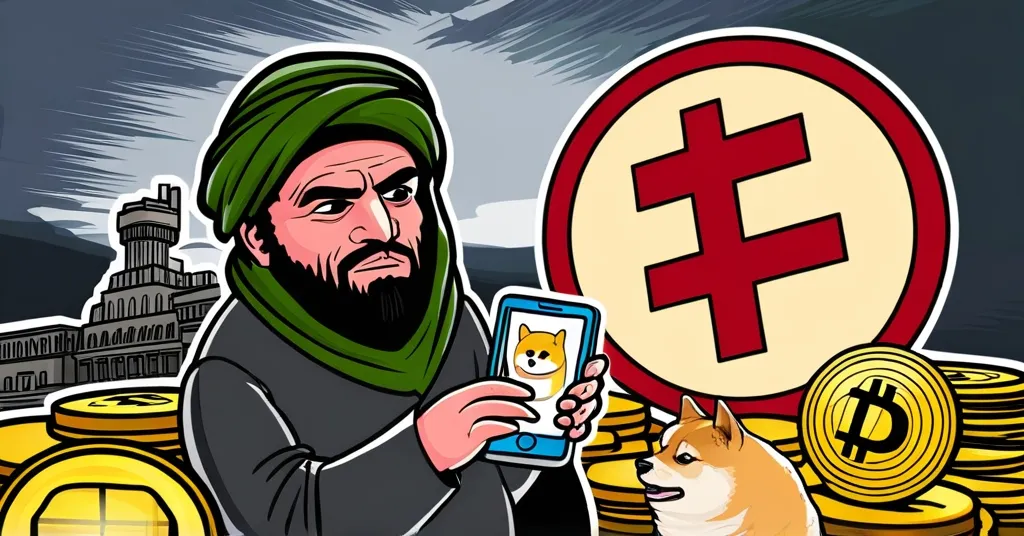Taliban’s Crypto Paradox: Trading Memecoins Despite Nationwide Ban

Taliban’s Crypto Contradiction: Trading Memecoins Amid a Nationwide Ban
The Taliban, known for its strict Islamic governance, has long denounced cryptocurrencies as “haram,” or forbidden. Yet, in an unexpected development, reports suggest that some members are trading memecoins such as Shiba Inu (SHIB) and Dogecoin (DOGE), despite their public condemnation.
- The Taliban declared a nationwide ban on cryptocurrencies, labeling them “haram.”
- Contradicting their own policies, certain members are reportedly trading memecoins for profit.
- Afghanistan’s economy is struggling under the Taliban’s financial policies and international sanctions.
- The Taliban’s international relations show increasing complexity, with growing ties to Russia.
After taking control of Afghanistan in 2021, the Taliban imposed a sweeping ban on cryptocurrencies, shutting down 16 exchanges and arresting operators. The official narrative was to uphold Islamic principles and curb financial practices seen as gambling or scam-laden. However, the reality is more nuanced. The nickname “Talibros” surfaces on social media, capturing the duality in their stance—publicly anti-crypto while privately profiteering.
Before the Taliban’s rule, cryptocurrencies provided a critical financial lifeline for Afghans, allowing them to bypass sanctions and access funds despite bank restrictions. In 2021, Afghanistan ranked 20th in the world for crypto adoption, according to Chainalysis, a blockchain analysis firm. The Taliban’s crackdown has severed this vital economic support, worsening the nation’s financial woes, compounded by $7 billion in frozen reserves.
The clandestine engagement of Taliban members in trading memecoins underscores the undeniable allure and profitability of decentralized finance. Ironically, the very tool the Taliban seeks to control—cryptocurrency—poses a threat to their economic stronghold. While some members capitalize on trading, the broader Afghan population continues to face economic hardship.
On the geopolitical stage, the Taliban’s evolving alliances, particularly with Russia, signal strategic shifts. Such partnerships may serve as a bid to strengthen their international position despite global scrutiny.
Key Takeaways and Questions
Why did the Taliban ban cryptocurrencies?
The Taliban declared crypto as “haram,” claiming it promoted gambling and scams, but many believe the underlying motive was to maintain tighter economic control.
How are Taliban members reportedly engaging with cryptocurrencies?
Despite the ban, some Taliban members are trading memecoins like Shiba Inu and Dogecoin for personal financial gain.
What impact has the Taliban’s crypto ban had on Afghanistan’s economy?
The ban further destabilized Afghanistan’s already fragile economy, cutting off a crucial financial resource for citizens who relied on crypto for remittances.
What international relationships are influenced by the Taliban’s actions?
The Taliban’s relations with Russia, including exploring partnerships and support, highlight shifting geopolitical dynamics.
As Afghanistan continues to navigate the economic and socio-political consequences of the Taliban’s policies, the contradiction between their public declarations and private practices offers a revealing glimpse into the complexities of the situation. The story of cryptocurrency in Afghanistan remains a developing narrative, with its future possibly hinging on the balance between ideological rigidity and economic pragmatism. Even the Taliban, it seems, can’t completely resist the allure of digital currencies with cute dog themes.



